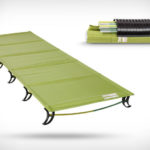Having food waste is one of the major problems every mother or a house owner has to deal with. Especially if you are money-wise, it’s upsetting every time you see a leftover on your refrigerator. It is inevitable to have food waste occasionally as, in some situations, we can’t help but prepare a buffet or buy plenty of food. However, if it happens to you several times, it is a good idea to rethink your food-related decisions and how you handle your kitchen stuff.
In this article, you will learn about the different ways to reduce food waste and be as sustainable as possible. So, if you are having trouble with your food management, you should read these essential tips, and they will surely improve your way of life.
Stop Buying Too Much
We know that you badly want to save your time and effort for going to the grocery store back and forth. That is why you are buying gallons of milk, multiple fruit packs, and tons of raw meats for a 2-week supply. However, you need to remember that buying too much food is a big red flag, especially for perishable goods as they tend to spoil faster than processed foods. Before buying raw meats like chicken, you should know how long does raw chicken last in the fridge so that you can estimate how much is enough for a week’s supply.
There are things that you should consider before going to your favorite grocery store. Avoid buying excessively and buy the food that is only enough for the people under your roof. If you don’t know things about this, you better step up your game and research reliable sources on the internet.
Buy Wisely
Being able to determine whether the meat is fresh or not is a plus point for this plan, as well as looking at whether a fruit or vegetable will nearly go bad or not. By learning these things, it will save you from dealing with rotten food within days after purchase. Aside from that, You should be aware that “best before” and “use-by” dates are not interchangeable. Food can sometimes be consumed after the “best before” date, but the “use-by” date indicates when it is no longer safe to consume. Look for unhealthy ingredients like trans fats and preservatives on food labels, and avoid items with added sugar or salt. Smart-buying will certainly help you to improve your food management at home.
Don’t Throw Away Everything
Never judge a food by its appearance. Fruits and vegetables that are bruised or oddly shaped are frequently discarded because they do not fulfill arbitrary beauty standards. They taste the same, so don’t worry. When greens and vegetables are just past ripe, for instance, they may soften or wilt slightly. They could still be a great addition to soups or baked foods. You may also use mature fruit for smoothies, juices, and baked desserts.
Furthermore, while a mold indicates that something should be thrown out, items that are somewhat past their prime do not need to be discarded immediately. “Best before” dates can be deceiving; if the product looks to be fresh and edible, it is usually safe to eat.
Smart-Saving Is the Key
Cooking your food has the advantage of allowing you to customize recipes by adding new flavors and ingredients. When you’re experimenting in the kitchen, include pieces of foods that aren’t often used is a great way to repurpose waste. It would be best to think wisely about using those leftovers or nearly spoil food to prevent being thrown away.
Examples of ingredients that you can use are Stems and stalks that are delicious in sautés and baked dishes, and you can use garlic and onion ends to flavor stocks and sauces. Aside from that, making fresh pesto with broccoli stems, wilted spinach, soft tomatoes, or cilantro instead of typical basil is a unique way to spice up your favorite dishes.
Store Food Correctly
Fresh fruits and vegetables are easy to overbuy or overlook. With that, you should store these perishable goods in the refrigerator for maximum freshness; they will taste much better and last longer, allowing you to eat more of them.
- Learn how to keep fruits and veggies fresher for longer, whether they’re kept inside the refrigerator or not.
- Preserve, freeze, or can surplus fruits and vegetables – particularly seasonal produce.
- As fruits ripen, they release natural gases that cause neighboring food to decay faster. You should keep apples, bananas, and tomatoes apart from other fruits and vegetables, and fruits and vegetables should be kept in different bins.
- To avoid mold, wait until you’re ready to consume the berries before washing them.
- Take what you’ll eat for the day out of the refrigerator in the morning if you prefer fruit at room temperature. Nevertheless, it would be best if you stored it in the fridge to prolong freshness.
Eat Leftovers
Stop with the picky-eater narrative and start eating all the leftovers from the party you had a day ago. Reheating foods has been a thing nowadays as we live in a fast-moving society and most people don’t have the time to prepare their foods. With that, we can say that re-heating food is not that bad. So why don’t you?
As long as it is still fit to eat and hasn’t gone bad, make sure to finish your leftovers before trying to cook a new meal. If you really can’t stand eating the same food for your lunch and dinner, then you could experiment and re-cook it into a new dish.
Key Takeaways
Most people don’t realize how much food they get to waste every single day. Some individuals don’t care, and some are working hard to change their ways. Numerous possible methods can help you to reduce your food waste in your home. All you need to do is follow all the tips written above so that you can start saving food and money. Remember that even minimal changes to the way you buy, cook, and consume your food will help reduce your food waste, and it can positively impact the environment.













